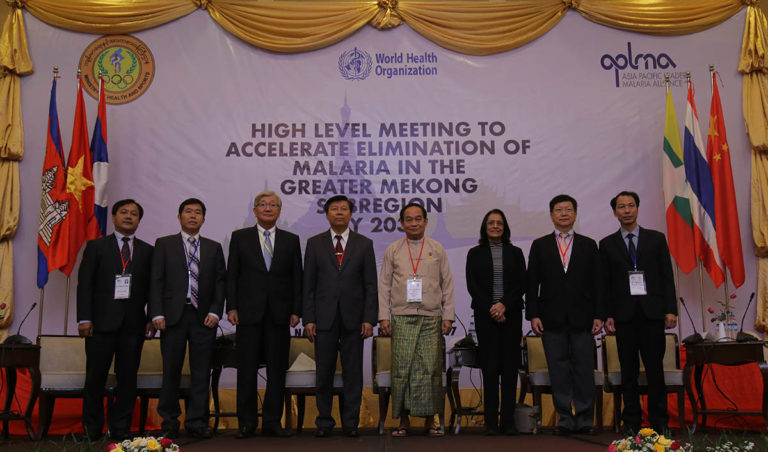Representatives from Cambodia, China, the Lao People’s Democratic Republic, Myanmar, Thailand and Viet Nam called for accelerated action to eliminate malaria in the Greater Mekong Subregion (GMS) by the year 2030.
Amid concerns about drug resistance emerging in the subregion, the six GMS countries stressed that eliminating malaria requires urgent and coordinated action, with support from implementing agencies, funders and other partners.
In their Call for Action, Ministers from the six countries pledged to:
- ensure activities to eliminate malaria in the subregion are fully funded, including with more domestic funds;
- improve cross-border collaboration and establish an independent oversight body, for which WHO will act as the secretariat;
- strengthen systems for the identification and timely reporting of malaria infections, including drug-resistant forms;
- provide the best possible prevention, diagnosis and care for all people at risk of malaria, including free services for ethnic minorities and mobile and migrant populations, as part of universal health coverage;
- ensure available antimalarial medicines are safe and effective for use;
- bring all concerned sectors together to translate policies into time-bound and results-oriented actions; and
- engage communities in malaria elimination using innovative communication tools.
“Malaria is a disease that we can—and must—eliminate from the Greater Mekong Subregion,” said Dr Poonam Khetrapal Singh, WHO Regional Director for South-East Asia. “The drive to achieve this goal by 2030 demonstrates the joint commitment of health leaders from across the subregion to secure the health and well-being of vulnerable populations and ensure no one is left behind.”
“The malaria parasite doesn’t need a passport or a visa to cross borders,” added Dr Shin Young-soo, WHO Regional Director for the Western Pacific. “You must work more closely together as one region, with one strategy to drive elimination.”
The High-Level Meeting was the concluding event of Malaria Week 2017 in Nay Pyi Taw, Myanmar. It was convened by the Ministry of Health and Sports of Myanmar in collaboration with the World Health Organization (WHO) and the Asia Pacific Leaders Malaria Alliance (APLMA)

